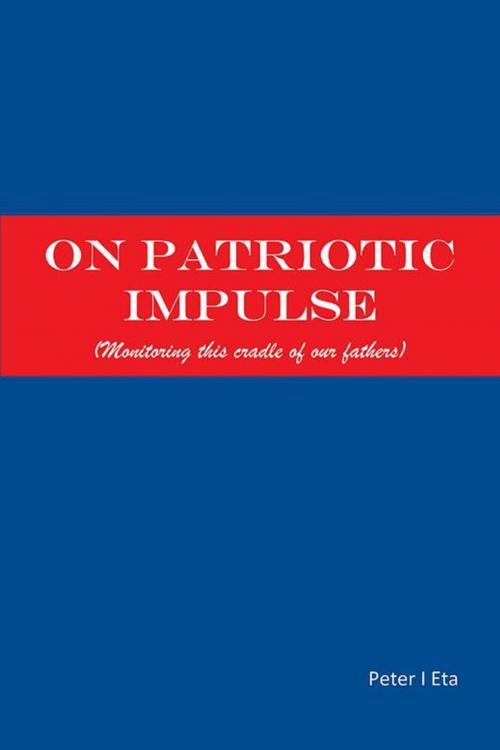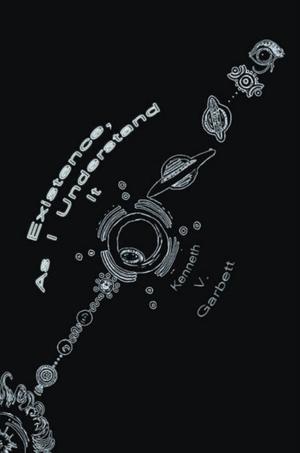On Patriotic Impulse
(Monitoring This Cradle of Our Fathers)
Nonfiction, Social & Cultural Studies, Social Science, Cultural Studies, African-American Studies, Art & Architecture, General Art, Political Science| Author: | Peter Eta | ISBN: | 9781514456200 |
| Publisher: | Xlibris US | Publication: | February 25, 2016 |
| Imprint: | Xlibris US | Language: | English |
| Author: | Peter Eta |
| ISBN: | 9781514456200 |
| Publisher: | Xlibris US |
| Publication: | February 25, 2016 |
| Imprint: | Xlibris US |
| Language: | English |
The reader must exercise Pentecostal patience in reading this collection of essays spiced with poems of the heart especially as both poetry and prose follow the same political thought and trajectory, the same democratic vision and tapestry and the same conclusion that Cameroon may be condemned but not beyond redemption. From his holistic interpretation of our endemic political cannibalism (democratic deficit and the vexing Anglophone problem), our perennial economic malaise (hydra-headed corruption octopus), our systemic social misdemeanor (football dilemma) our propensity to environmental degradation (waste disposal culture) our religious asymmetry (spiritual and secular coexistence) and our bloated personal ego systems (politics by patronage and patricide),the author's consistency and persistence in taking a swipe at the different strokes of leadership is as compelling as it is nauseating. It is his emphasis on deconstructing the empire of a clientelist cabal of politicians across the divide and replacing it with a regime that means well for its people and his critique of an institutionalized prebendal governance complete with a sordid metaphorical nexus between the fact that if Paul is the problem, John is not the solution that leaves the reader with the mind-boggling question of where do we go from here? As would be expected it is the Opposition parties often regarded arguably as `governments in waiting that take the larger dose of the author's adrenalin thus keeping the author in the dual position of a gatekeeper and gatecrasher of our political history. Fortunately any writer in politics striving to write for the gallery ends up as a doormat for both the ruling party carrotocracy and the opposition party kleptocracy. The role of any credible writer in politics is to transform the lullaby of political slumber to the yells of democratic renewal. For a country that excels in confusing unity with unanimity, constitutional respect with the personification of power, creative contradictions with imposed consensus, servile sycophancy with unbridled patriotism and positive peace with negative calm, the author's message is clear: it is time for all Cameroonians to take an oath of patriotism not by holding the holy book but by holding the constitution in the right hand and the penal code in the left.
The reader must exercise Pentecostal patience in reading this collection of essays spiced with poems of the heart especially as both poetry and prose follow the same political thought and trajectory, the same democratic vision and tapestry and the same conclusion that Cameroon may be condemned but not beyond redemption. From his holistic interpretation of our endemic political cannibalism (democratic deficit and the vexing Anglophone problem), our perennial economic malaise (hydra-headed corruption octopus), our systemic social misdemeanor (football dilemma) our propensity to environmental degradation (waste disposal culture) our religious asymmetry (spiritual and secular coexistence) and our bloated personal ego systems (politics by patronage and patricide),the author's consistency and persistence in taking a swipe at the different strokes of leadership is as compelling as it is nauseating. It is his emphasis on deconstructing the empire of a clientelist cabal of politicians across the divide and replacing it with a regime that means well for its people and his critique of an institutionalized prebendal governance complete with a sordid metaphorical nexus between the fact that if Paul is the problem, John is not the solution that leaves the reader with the mind-boggling question of where do we go from here? As would be expected it is the Opposition parties often regarded arguably as `governments in waiting that take the larger dose of the author's adrenalin thus keeping the author in the dual position of a gatekeeper and gatecrasher of our political history. Fortunately any writer in politics striving to write for the gallery ends up as a doormat for both the ruling party carrotocracy and the opposition party kleptocracy. The role of any credible writer in politics is to transform the lullaby of political slumber to the yells of democratic renewal. For a country that excels in confusing unity with unanimity, constitutional respect with the personification of power, creative contradictions with imposed consensus, servile sycophancy with unbridled patriotism and positive peace with negative calm, the author's message is clear: it is time for all Cameroonians to take an oath of patriotism not by holding the holy book but by holding the constitution in the right hand and the penal code in the left.















